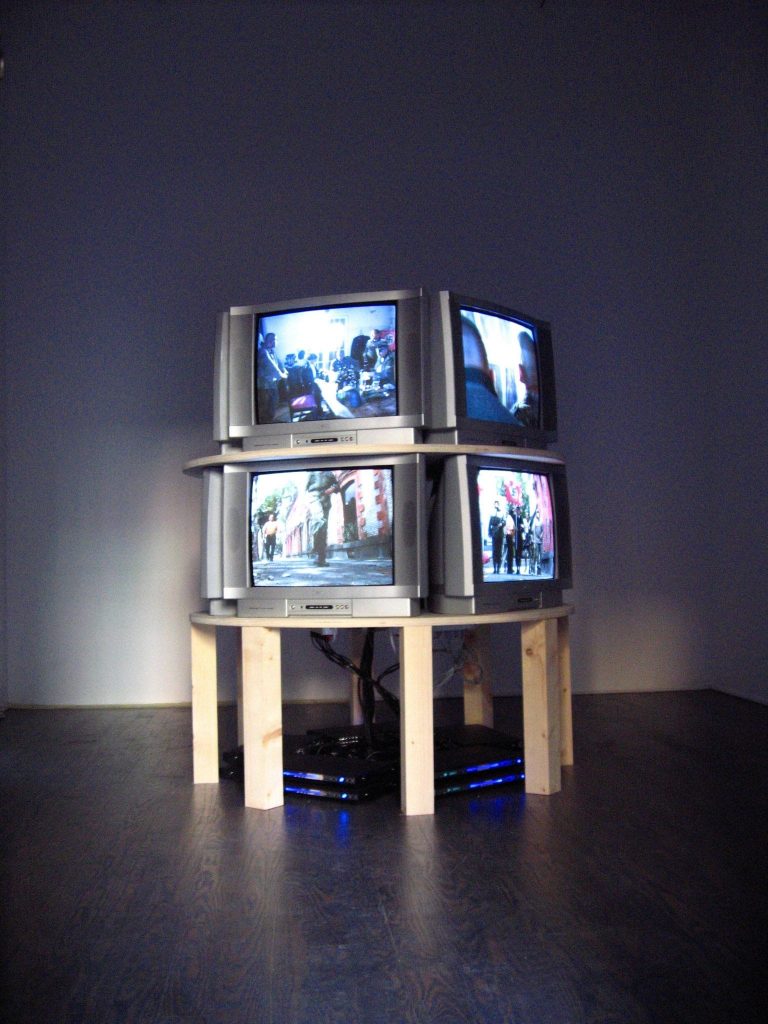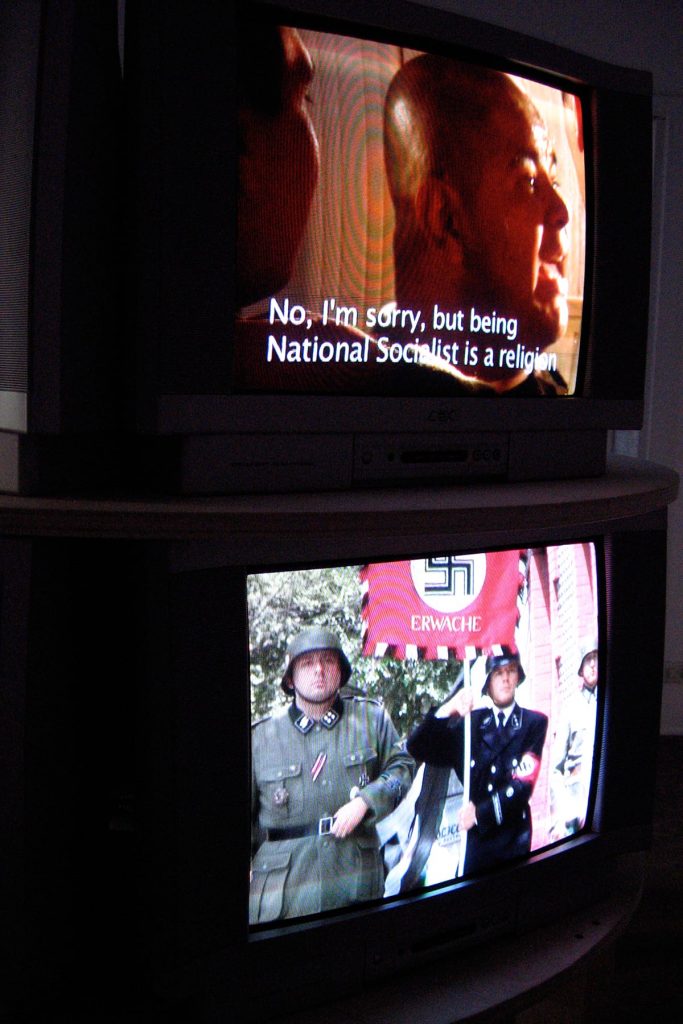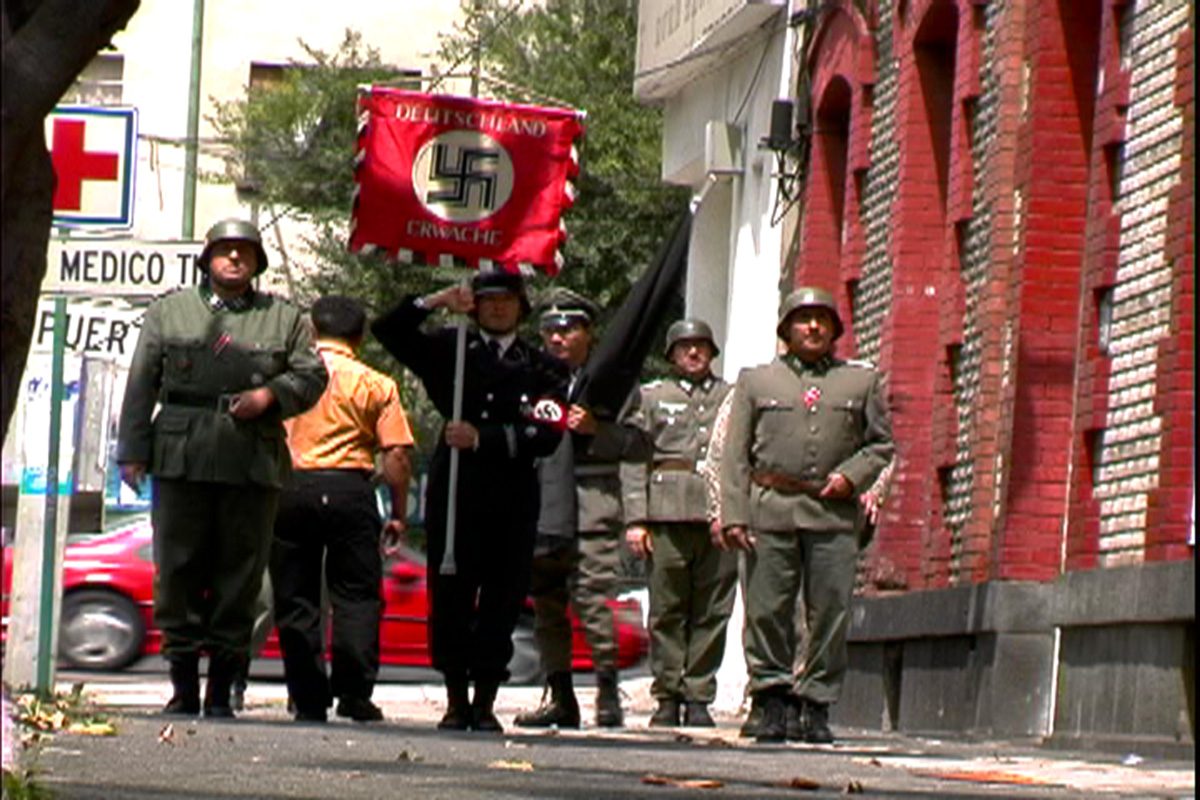
- This event has passed.
francesca kaufmann is presenting Yoshua Okon’s second solo show. At the same time, the artist will be showing at the Castello di Rivoli on the occasion of T1, the first edition of Turin Triennal, curated by Carolyne Christov Bakargiev and Francesco Bonami.
Yoshua Okon was born in Mexico City in 1970 and lives and works in Mexico City and Los Angeles.
Of Mexican origin and American by adoption, Yoshua Okon is a fiercely ironic observer of the cultural systems of these two nations and their difficult proximity and problematises the artificiality of the nation-state construct itself. Okon compiles merciless portraits of the societies he lives in, analyzing the stereotypes, the flaws and the myths which compose the panorama of contemporary North American society in the shape of videos, performances and installations.
Yoshua Okon’s work tends to dissolve the limit between reality and fiction and to insert the viewer in extreme and disarming situations. The sense of displacement reveals the paradoxical characteristics and the involuntary hilarity of certain aspects of reality. The choice of using common people as opposed to actors for his video implies the necessity of a preliminary stage of observation and persuasion to perform and contrasts with the discrete but not concealed presence of a director which occasionally provokes the unforeseen reactions of the main characters of his videos.
Bocanegra, the work which is being exhibited at francesca kaufmann, is a ten-channel installation in which Yoshua Okon portrays a group of Mexicans obsessed with the Third Reich period during one of their weekly meetings. He records their gestures and rituals, starting with a regimented parade in the chaotic streets of Mexico City and followed by a gathering marked by surreal debates on the purity of the Aztec race. Once more, Yoshua Okon is revealing yet another shadowy segment of Mexican society drawing from reality and escaping the need for actors or scripts. The Nazi iconography, full of machismo and nostalgia for a time that never was, is so completely detached from the context to create a visual and logical short circuit. The attention of the work moves on to the research of the ancient causes of such rooted, though historically removed, fanaticism, with an analysis of a phenomenon which borders on the absurd. At the same time, this piece explores the way in which European ideologies were imported into the American Continent and how this particular set of ideas have been appropriated and developed in this context. Lago Bolsena is a video installation with monitors and loud speakers embedded on sculptures made of ten massive tree-trunks in their natural form. The videos show scenes of a group of 70 people, the whole block of a Mexico City’s neighbourhood, who were asked to pretend to be a tribe of savages being recorded by a team of anthropologist and hired to improvise inexistent rituals. The naivety of the simple tree-trunks seems stained by the modernity of technology, here again a vehicle through which Okon ironically revisits long forgotten rituals.



